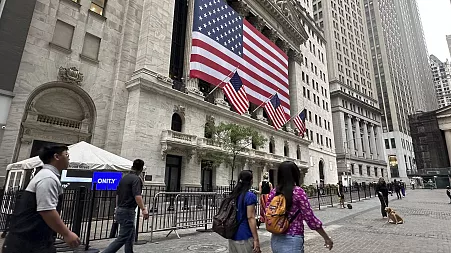Household confidence has sunk as concerns grow that Rachel Reeves and Sir Keir Starmer are talking Britain into a downturn.
GfK’s long-running measure of consumer confidence plunged by seven points to -20 in September, suggesting families are feeling more anxious about their finances and the economy.
Neil Bellamy, of GfK, blamed “the withdrawal of the winter fuel payments, and clear warnings of further difficult decisions to come on tax, spending and welfare” for the slump in confidence.
Households reported feeling far less upbeat about the economic situation a year from now, with the measure dropping 12 points from August to -27.
It follows a similar drop in business confidence reported by both the Institute of Directors and the Confederation of British Industry amid concerns about tax rises in October’s Budget. Companies have put off plans to hire and invest as a result, raising fears that the Government could tip the economy into a downturn.
City grandees and influential economists urged the Chancellor to give a message of hope.
Sir Philip Hampton, the former chairman of Royal Bank of Scotland, GSK and Sainsbury’s, told The Telegraph: “The more politicians are gloomy of course the more these sort of animal instincts are going to be constrained.
“I do think that there’s a job of political leadership to remind people that innovation, discovery and change can happen even within a very financially constrained Government.”
Sir Keir Starmer last month told voters things would get worse before they got better and as he warned of a “painful” Budget.
Ms Reeves has meanwhile warned of a £22bn black hole in the public finances despite outsized public sector pay rises signed off by the Treasury making up close to half of it.
Sir Martin Sorrell, executive chairman of S4 Capital and the founder of the world’s largest advertising and PR group WPP, said it was clear the Government was “preparing us for significant tax increases”.
He told The Telegraph: “We are not getting stability at the minute, which is probably the reason why consumer confidence is declining. Clients are also worried about stability, so they’re not willing to invest.
“There is clearly an exodus of wealthier people from the UK. That is an issue.”
Households told GfK they had become much less confident about making large purchases over the last month, signalling they are likely to constrain spending.
Mr Bellamy said: “People are almost retrenching in their spending and protecting themselves and their family first of all.”
Confidence has fallen faster among the oldest cohorts, underlining that scrapping the winter fuel payment was “playing on people’s minds”.
Mr Bellamy said: “People have got a bit scared about the future. Since Labour has come in there has been a lot of talk about serious decisions to be made, we’ve got to look at budgets, there might be pain to go through. People are taking it very seriously.”
Jagjit Singh Chadha, the director of the National Institute of Economic and Social Research, said the Government’s “dominant narrative since the election victory” cannot “really have helped”.
Mr Chadha said: “What we really want from the new Government is a statement of confidence that they can roll up their sleeves. There is a reluctance to just be a little bit more courageous about how we’re going to sort out our problems.”
Andrew Wishart, senior UK economist at Berenberg, noted that falling interest rates and low inflation should make families more upbeat about the future.
He said: “That normally causes consumer confidence to strengthen. Therefore what is driving it very much so [is] the Government’s tone ahead of the Budget.”
Disclaimer: The copyright of this article belongs to the original author. Reposting this article is solely for the purpose of information dissemination and does not constitute any investment advice. If there is any infringement, please contact us immediately. We will make corrections or deletions as necessary. Thank you.



